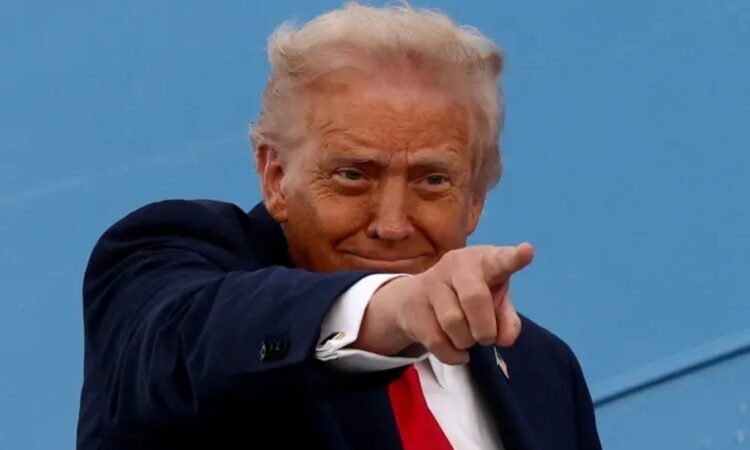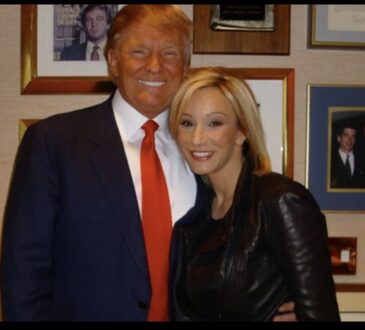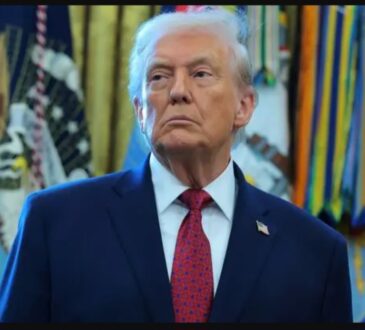
Donald Trump, the President of the United States, was seen boarding Air Force One at London Stansted Airport in September 2025. Around the same time, a storm of controversy grew after he publicly directed his Attorney General, Pam Bondi, to begin criminal prosecutions against three people he considers his enemies.
These three were FBI Director James Comey, Democratic Congressman Adam Schiff, and New York Attorney General Letitia James. Trump went so far as to label them “guilty as hell” even though none of them have been charged with any crimes, and there is no legal evidence to support his accusations.
His demand appeared less about justice and more about punishing those who have investigated or opposed him in the past, especially since all three were involved in legal or political efforts that led to his indictments and impeachment.
This move alarmed many experts, especially those who have worked inside the Justice Department. Barbara McQuade, a former U.S. Attorney, wrote a detailed piece in Bloomberg explaining why Trump’s actions should be seen as a major threat to the independence of America’s legal system.
McQuade explained that prosecutors are expected to make decisions “without fear or favor,” meaning they must be guided only by facts and the law, not by political agendas or personal grudges. Trump, however, is openly asking prosecutors to abandon this principle and instead act with loyalty to him, punishing whoever he points to.
Trump also added more pressure by suggesting that any prosecutor who refuses his orders should be removed. He attacked Erik Siebert, a man he had himself nominated to serve as U.S. Attorney in Virginia, because Siebert would not bring charges against Letitia James.
In response, Trump dismissed Siebert and put forward Lindsay Halligan, a lawyer who had previously represented Trump personally and was now serving as a White House aide. By doing this, Trump signaled that he wants to fill the Justice Department with people who will not question him but will instead carry out his demands, no matter how political or baseless they may be.
McQuade warned that this kind of “stacking” of the Justice Department with loyalists undermines one of the core foundations of American democracy. Since the Watergate scandal in the 1970s, there have been rules and traditions in place to prevent presidents from interfering in criminal cases.
These include strict limits on how much the White House can even communicate with the Department of Justice, precisely to avoid the appearance of political influence. She pointed out that even when George W. Bush’s administration fired nine U.S. Attorneys in 2006, the backlash was so strong that the Attorney General at the time, Alberto Gonzales, was forced to resign. That scandal shook public trust, but McQuade argued that Trump is going even further by openly demanding prosecutions of his rivals.
The danger here, she explained, is not only about the individuals Trump is targeting. It is about the principle that the United States is supposed to follow: the rule of law.
In America, justice is meant to apply equally to everyone, regardless of power, wealth, or political position. If prosecutors begin charging people just because the president wants revenge or wants to intimidate opponents, then that principle collapses. The justice system becomes a weapon of political power rather than a shield that protects fairness and equality.
McQuade wrote that every prosecutor now faces a difficult choice. They must decide if they are willing to stand firm, even if it means losing their jobs, or if they will bend to political pressure and allow the justice system to be corrupted.
She insisted that prosecutors should be prepared to resign rather than follow illegal or unethical orders. Anyone who goes along with Trump’s demands, she argued, is unworthy of holding such an important role.
Her words also carried a broader warning for the country itself. If a president believes loyalty to him personally matters more than loyalty to the Constitution or to the law, then he is unfit to hold the nation’s highest office. The integrity of the legal system is essential for democracy to survive.
If that integrity is destroyed, then no one is truly protected—because the law would no longer stand above politics, but would instead bend to the will of whoever holds power.




